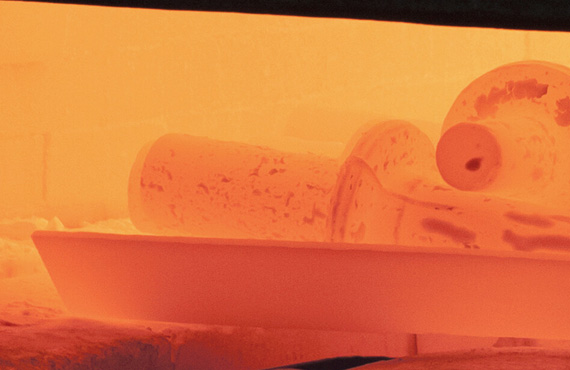Corrosion test heat treatment is a test process applied to assess the resistance of metals and alloys to corrosion under specific environmental conditions. These tests are performed to measure the resistance of metals and coatings to oxidation, rusting, or chemical degradation over time. It is critical for parts that will be exposed to harsh industrial and outdoor conditions.
During the heat treatment process, the material can be heated to specific temperatures and then cooled in a controlled manner to increase its resistance to corrosion. This process helps preserve the structural integrity of the material and contributes to its longevity.


